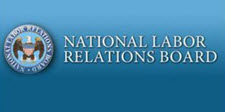A conflict of interest by a newly-appointed member of The National Labor Relations Board (NLRB) prompted the agency on Monday to restore a 2015 ruling that renders employers vulnerable to claims by “indirect” workers who are not immediate hires – a move with significant implications that again subjects hotels, other franchise-model businesses, and companies that hire contractors to an expansive “joint employer” liability standard.
 |
With Browning-Ferris revived, an expanded, vague test – based on “indirect ” and “ potential ” control over workers’ terms and conditions of employment – will replace a more predictable and clear “direct and immediate control” standard for determining joint employer liability. |
Last December, the NLRB issued its decision in Hy-Brand Industrial Contractors, Ltd. , which overturned the Obama-era “joint employer” standard announced in Browning-Ferris Industries of California, Inc. (Roundtable Weekly, Dec. 15, 2017) With Hy-Brand now vacated – because the board’s inspector general recommended that a Trump appointee who previously worked for a law firm that represented one of the companies in Browning-Ferris should have recused himself – the 2015 decision is back in effect.
The withdrawal of Hy-Brand creates an uncertain and complicated legal landscape for ongoing franchise-related cases. (New York Times, Feb. 26)
With Browning-Ferris revived, an expanded, vague test – based on “indirect” and “potential” control over workers’ terms and conditions of employment – will replace a more predictable and clear “direct and immediate control” standard for determining joint employer liability. The decision exposes a broad range of contractors and subcontractors, and franchisors and franchisees, to workplace liability for another employer’s actions and a potential obligation to collectively bargain with workers they have not directly hired. (Wall Street Journal, Dec. 14.)
As the NLRB’s action vacating Hy-Brand demonstrates, congressional action could definitively address the joint employer standard and insulate the issue from whichever party has enough appointees to swing the majority on the highly politicized labor board. The House of Representatives in November 2017 passed the Save Local Business Act (H.R. 3441), which would codify the “direct and immediate control” standard when deeming employers liable for workplace violations.
A multi-industry coalition, including The Real Estate Roundtable, on Feb. 15 wrote Senate leaders urging them to take up H.R. 3441 as soon as possible to provide certainty for small business owners and other employers in all industries, while clarifying protections for American workers.